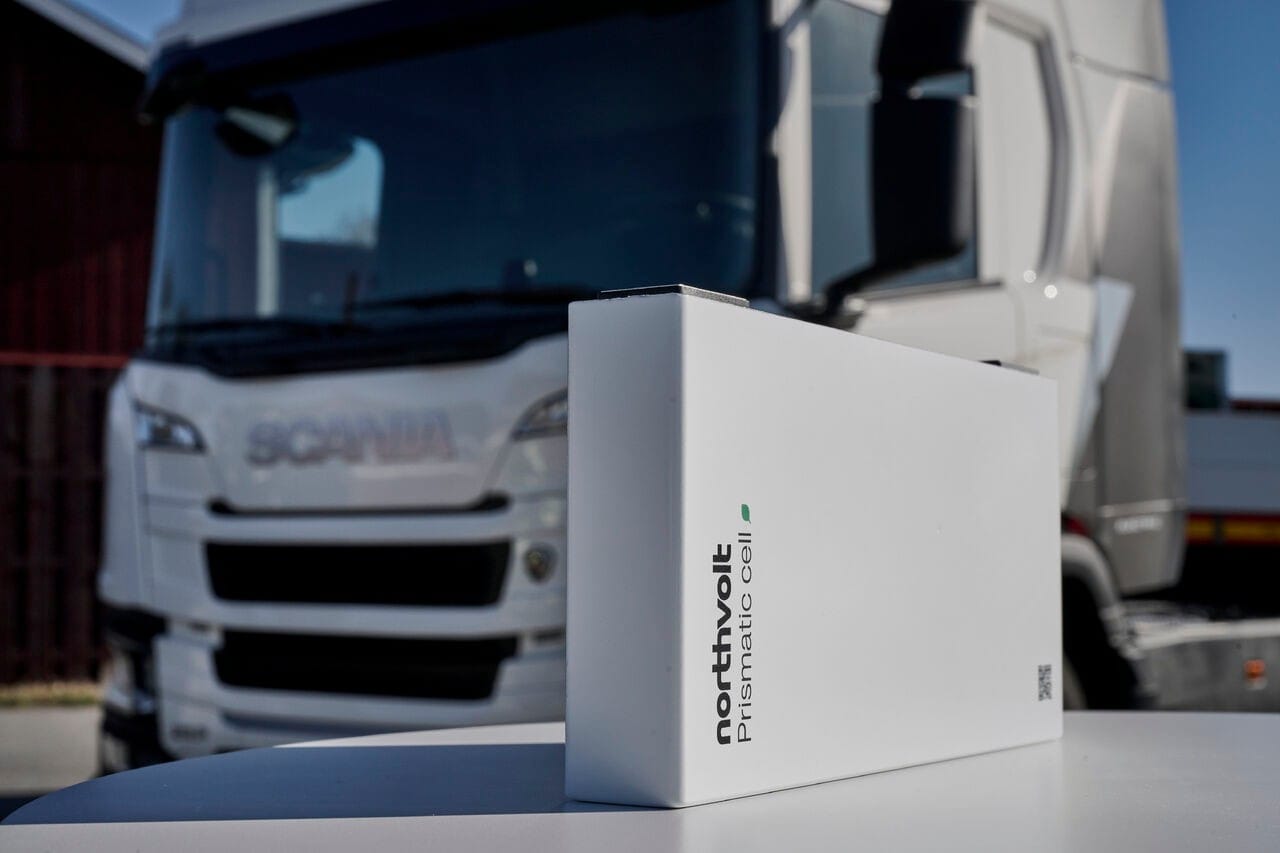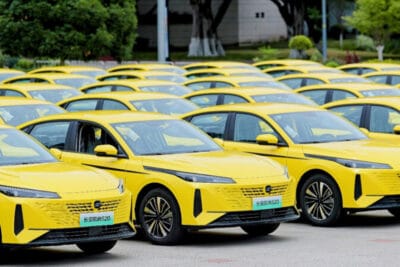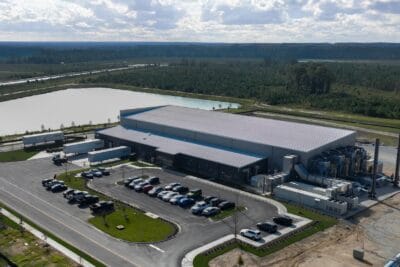Scania to save Northvolt Labs
Northvolt has been in crisis for a long time and initially filed for creditor protection proceedings in the USA in November 2024, followed by insolvency in Sweden in March 2025. In May, it was announced that battery cell production at the main plant in Skellefteå would be discontinued at the end of June.
The only recent customer for the cells was Scania, which has long been Northvolt’s best customer and is also linked to the company via its parent company Volkswagen, which is Northvolt’s largest shareholder with a 21 per cent stake. In the course of Northvolt’s turbulence, Scania has already taken over the battery systems division Northvolt Systems Industrial, including the research and development centre and a team of around 260 employees.
Now, Scania’s next rescue operation: CEO Christian Levin sees Northvolt Labs not only as an entrepreneurial opportunity, but above all as a strategic necessity in order to preserve Europe’s expertise in the field of battery technology. In other words, Scania does not want to leave the field to competing players such as CATL from China or LGES from South Korea.
Consortium for the preservation of the ‘crown jewel’
However, Scania needs partners for the rescue attempt and plans to form a consortium of industrial partners, the Swedish government and the EU Commission to buy Northvolt Labs out of insolvency. ‘We are trying to form a consortium that would partly finance this, but we can’t do it alone, it’s just too much, even for a big company like ours,’ Levin told the Financial Times. The aim is to secure the site and the knowledge accumulated there for Europe.
Northvolt had invested around 750 million dollars in the facility. It is regarded by industry experts as the ‘crown jewel’ of the company. Around 1,100 highly qualified employees conduct research into innovative battery materials and recycling processes there. Despite the crisis surrounding the company, this research base remains of great importance – also for the European industrial centre as a whole. The danger of Asian competitors expanding their technological dominance in the battery sector is a warning signal for many decision-makers in Europe.
Also important for the EU’s fleet targets
The importance of preserving Northvolt Labs goes far beyond saving a research facility. Scania sees itself – and the European commercial vehicle industry – under increasing pressure due to Northvolt’s difficult situation. The shift towards low-emission drives is politically desired and stipulated by regulations: Commercial vehicles in the EU are to produce significantly lower emissions by 2030.
But the market is lagging behind. In the first quarter of 2025, battery-electric trucks accounted for just 3.5 per cent of sales. To achieve the EU targets, this share would have to rise to 35 per cent by 2030. ‘If we don’t achieve a corresponding sales volume, we will simply become too expensive and won’t be able to compete in China or Southeast Asia,’ warns Levin. The result would not only be competitive disadvantages, but also high fines.
Lack of European batteries
Scania will continue to purchase battery cells from the ailing company until the end of June, albeit under difficult conditions. At the same time, the supply from Asian suppliers is being expanded. However, this is causing displeasure among many customers, as European batteries are considered particularly sustainable due to their lower carbon footprint. Dependence on non-European suppliers also contradicts the EU’s industrial policy objectives.
Although Scania is actively campaigning for the preservation of Northvolt Labs, political support has so far failed to materialise. Talks with officials in Brussels and Stockholm have so far been unsuccessful. Scania boss Levin made it clear: without public commitment, there is not only a risk of losing valuable jobs and research resources, but also a setback for Europe’s technological independence.
ft.com (paywall), norran.se





0 Comments